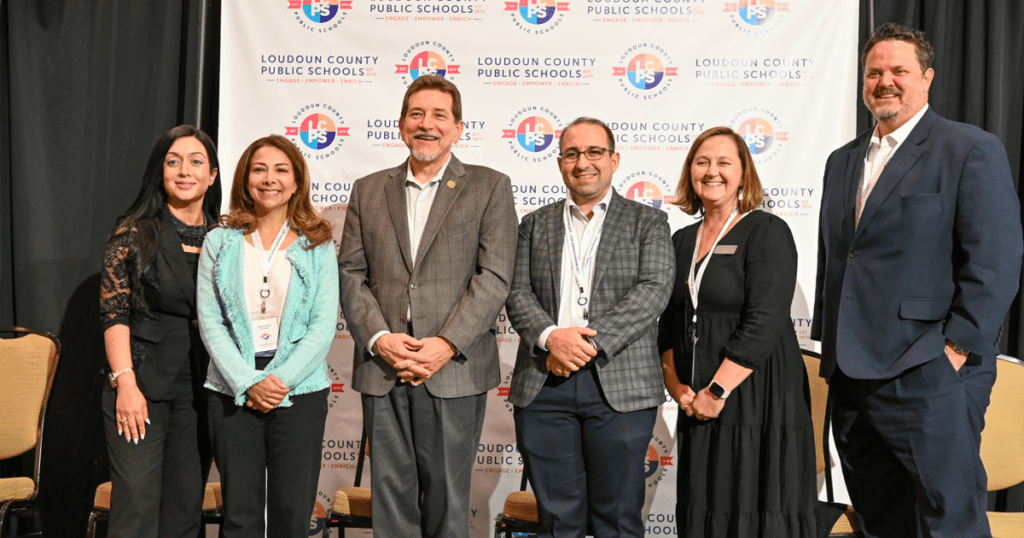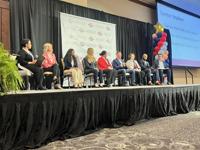Loudoun County Public Schools Superintendent Aaron Spence was excited to present the first Workforce Summit Friday morning in the National Conference Center Ballroom.
The summit was in response to a wish that the kindergarten through 12th grade curriculum included more employment readiness for paths other than college for its students.
Spence identified the inspiration for the event stemmed from a survey that found that about half of all high school students heard a lot about college, but not nearly enough knew about other opportunities available after high school.
“I’m not saying that students shouldn’t be prepared to go to college, but they also want to know what other opportunities exist, and they’re telling us we don’t do a good enough job talking about them,” Spence said.
Attendees at Friday’s event included business leaders, school division administrators, and organizations dedicated to workplace readiness.
A workforce development panel highlighted the broad variety of programs available to promote career readiness for students. The panel members were Department of Economic Development Business Development Manager Brandon Ferris; Northern Virginia Community College – Loudoun Provost Julie Liedig; T.J. Ciccone, vice president of critical operations at STACK Infrastructure; Catherine McConnell, the senior policy advisor at the Office of Career, Technical and Adult Education in the Department of Education; Dominion High School and the Academies of Loudoun student Nina Zasypkina, who is a member of HOSA previously known as Health Occupations Students of America; Nishita Kashyap, a career and technical education student at Stone Bridge High School; and Casey Sorenson, CTE department chair and a marketing teacher at Broad Run High School.

Panelists talk about developing the next generation of Loudoun’s workforce during Loudoun County Public Schools’ 2024 Workforce Development Summit Oct. 18.
Ferris highlighted the Working Loudoun program, which connects employers and job seekers to get people working. McConnell explained Unlocking Career Success, a program in schools that makes more accessible work-based learning.
Liedig explained some of the programs available through NOVA Community college, including new cyber security and AI education, “because that’s where the jobs are,” she said.
Zasypkina and Kashyap both had positive things to say about the various work-based learning programs they’ve experienced.
While in HOSA-Future Health Professionals and the Medical Laboratory and Technicians programs, Zasypkina got to experience real-life medical work. “Last week I got to print my own blood and figure out what blood type I am, which I never thought I would be able to do,” she said.
Buddy Rizer, executive director of Loudoun Economics Development, said schools and businesses need to partner to make sure students get experience through mentorships and internships. He said that was especially important in a world with so much changing technology.
“When we invest in the education of our students, when we equip them with the skills they need for a rapidly changing world, we’re building a stronger and more adaptable workforce,” Rizer said. “We’re creating a future where young people in Loudoun County can thrive, whether they’re coding the next AI breakthrough or starting a local business, and in doing so, we’re ensuring that our community remains a great place to live, work, learn and play.”
Participants also were able to meet in smaller industry-based groups and discussed what the school system could be doing improve career readiness in their fields.


